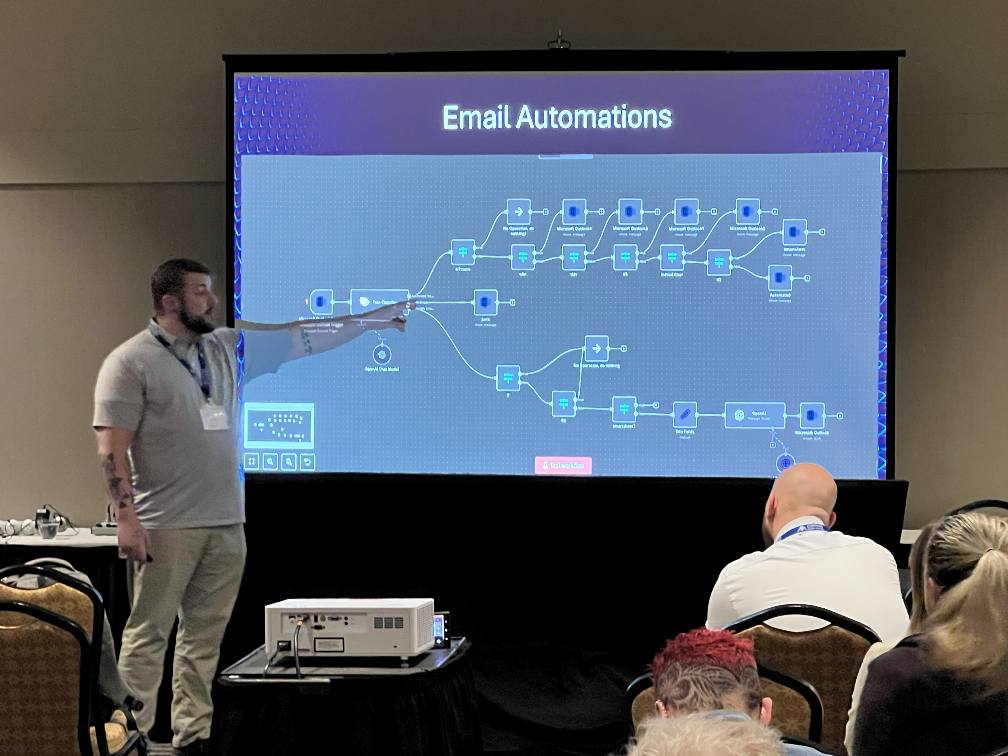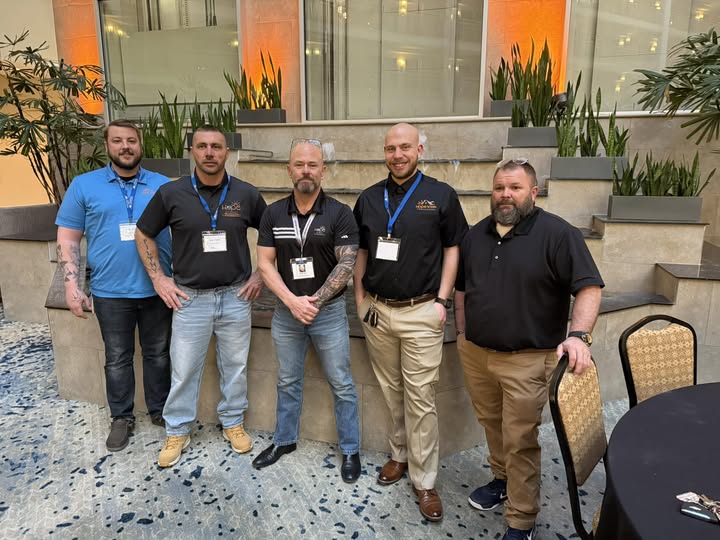Hope Town made an especially memorable impact at this year’s Annual Ohio Recovery Housing (ORH) Conference, an event renowned for uniting leaders, innovators, and passionate advocates from across the recovery community. Attendees from all corners of the state gathered to share best practices, innovative strategies, and to collaboratively chart a bold vision for the future of recovery housing in Ohio. Our team felt a deep sense of honor and pride to be an integral part of this important gathering, contributing not only through active participation but also by taking center stage to engage in meaningful dialogue about the path ahead.
A standout moment during the conference was steeped in recognition and heartfelt gratitude. Our CEO, Ted St. John, had the distinct privilege of presenting the esteemed Recovery Hero Award to Governor Mike DeWine. This award is not merely a symbolic gesture; it serves as a tangible acknowledgment of leaders who have demonstrated unwavering dedication to supporting individuals in their recovery journeys. Governor DeWine’s remarkable, long-standing commitment to expanding and enhancing recovery resources in Ohio made him an unmistakable and deserving honoree. As Ted took the stage, he eloquently recounted the Governor’s influential role in championing essential policy reforms, securing critical funding, and raising public awareness about recovery initiatives. The room resonated with enthusiastic applause, reflecting the collective appreciation for the Governor’s tireless efforts and the transformative impact of his leadership.
Beyond the ceremony of awards and recognition, the Hope Town team was deeply engaged in steering forward-looking conversations. We participated in interactive panels, facilitated roundtable discussions, and shared insights on emerging trends and innovative practices in recovery housing. Our involvement was driven by a firm belief in the power of collaboration and dialogue to spark meaningful change. We explored diverse strategies for overcoming current challenges, debated future policy directions, and envisioned a recovery landscape that is more inclusive, supportive, and resilient. Each conversation underscored the collective commitment to not only improving existing frameworks but also pioneering new solutions that could better serve communities across Ohio.
In sum, our experience at the ORH Conference was a multifaceted engagement that blended celebration, recognition, and forward-thinking dialogue. It was an inspiring reminder of the progress made so far and a call to action to continue advocating for robust, innovative, and compassionate recovery housing solutions throughout the state.

Hope Town AI Presents at ORH
Hope Town AI made a significant impact at the recent ORH conference, where innovation met heartfelt dedication. Ted St. John and Christopher Lattimer, our seasoned Automations Supervisor, led a compelling session titled “AI and Its Impact in the Recovery Housing Space,” which resonated deeply with an audience of recovery housing professionals, community leaders, and technology enthusiasts.
Their presentation began with an exploration of how artificial intelligence is set to revolutionize the recovery housing landscape. Ted and Christopher outlined how AI can streamline operations, increase access to care, and free up staff to focus on the critical human elements of recovery work. They explained that by automating repetitive administrative tasks, organizations can redirect energy and resources toward direct support for individuals on their path to recovery.
Drawing from real-world examples, the speakers showcased Hope Town’s innovative use of AI-powered tools. These tools have been instrumental in optimizing administrative workflows, enhancing data collection for compliance purposes, and even refining intake coordination processes. Christopher provided a deep dive into the technical aspects, illustrating how sophisticated automation can help recovery housing providers do more with less—especially in environments where resources are limited. His technical insights illuminated the practical benefits of adopting AI, such as reducing operational costs and minimizing human error.
Ted, on the other hand, emphasized the mission behind the technology. He passionately argued that AI is not a replacement for the personal touch so vital in recovery work; rather, it serves as a valuable ally that empowers staff to devote more time to what truly matters—caring for people. His heartfelt message reinforced the idea that when the burden of administrative tasks is lifted, caregivers are better positioned to build meaningful relationships and offer tailored support to those in need.
The energy in the room was unmistakable. Attendees were engaged and inspired, asking thoughtful questions and envisioning how these technologies could transform their own organizations. The dialogue sparked new ideas and fostered a collaborative spirit, underscoring the belief that innovation and recovery can go hand-in-hand. The presentation served as a powerful reminder that while AI can handle the routine tasks, it is the human element that drives real, impactful change in the recovery community.
We left the conference with a renewed sense of purpose and commitment. Inspired by the possibilities presented, Hope Town AI is more determined than ever to support the recovery housing movement with cutting-edge tools, deep empathy, and an unwavering respect for the life-changing work being carried out across Ohio. This event not only highlighted the practical applications of AI but also celebrated the enduring power of compassion in driving meaningful progress.

